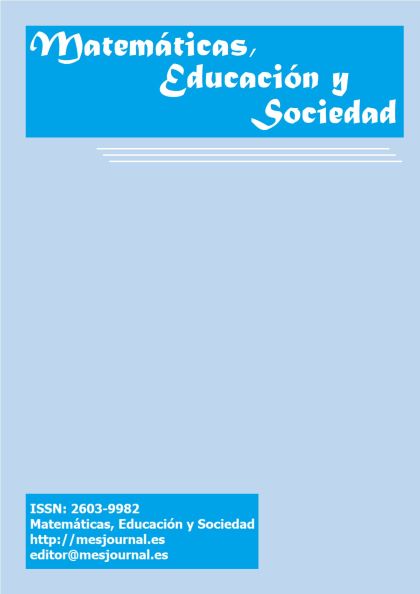Elements of the Historical Analysis of the Systems of Two Linear Equations With Two Incognites. Some Didactic Consequences
Main Article Content
Abstract
Elementary historical analysis, motivated by the search for meaning to the current use and applications of the systems of two linear equations with two unknowns, focusing attention on the origin of the concept and on the methods of resolution. The study is part of the phenomenon-epistemological analysis that will allow to configure a local model for the interpretation of the understanding of the same one. Highlight the close relationship with the development of equations and algebra in general, participating in the four known stages up to the present algebraic symbolism, as well as the existence of diverse methods of resolution and different forms of representation.
Downloads
Download data is not yet available.
Article Details
How to Cite
Martín Molina, J. C., & González Marí, J. L. (2020). Elements of the Historical Analysis of the Systems of Two Linear Equations With Two Incognites. Some Didactic Consequences . Mathematics, Education and Society, 3(1), 12–21. Retrieved from https://journals.uco.es/mes/article/view/12686
Section
Artículos
This work is licensed under a Creative Common License (CC BY 3.0 ES)
References
Arzarello F., Bazzini L. y Chiappin G., (1994). El álgebra como instrumento de pensamiento. Análisis teórico y consideraciones didácticas. CNR – Proyecto TID, cuaderno nº. 6.
Duval R (1999). Semiosis y Pensamiento Humano. Registros semióticos y aprendizaje intelectuales. Traducción al español a cargo de Myriam Vega Restrepo. Universidad del Valle, Colombia,
Franci R. y Pancanti M., (1988). Introducción de “El Trattato d´Algibra”. En: anónimo, página I – XXIX.
Gairín, J. M. y Sancho, J. (2002). Números y algoritmos. Madrid: Síntesis.
Grupo Azarquiel (1991). Ideas y actividades para enseñar álgebra. Madrid: Editorial Síntesis.
Kline, M. (1992). El pensamiento matemático de la Antigüedad a nuestros días (3). Madrid, España: Alianza.
Labraña A., Plata A., Peña C., Crespo E. y Segura R. (1995). Álgebra lineal. Resolución de sistemas lineales. Madrid: Editorial Síntesis.
Malisani, E. (1999). Los obstáculos epistemológicos en el desarrollo del pensamiento algebraico. Visión Histórica. Revista IRICE, 13, 105-134.
Moreno, M. F. (1998). Manual (6) para la formación inicial del profesorado de secundaria. Almería: servicio de publicaciones Universidad de Almería.
Nesselman, G. H. F. (1842). Intentando una historia crítica de Álgebra, parte 1. El álgebra de los griegos. Berlín: G. Reimer
Socas M, Camacho M., Palarea M. y Hernández J. (1989). Iniciación al álgebra. Madrid: Editorial Síntesis.
Duval R (1999). Semiosis y Pensamiento Humano. Registros semióticos y aprendizaje intelectuales. Traducción al español a cargo de Myriam Vega Restrepo. Universidad del Valle, Colombia,
Franci R. y Pancanti M., (1988). Introducción de “El Trattato d´Algibra”. En: anónimo, página I – XXIX.
Gairín, J. M. y Sancho, J. (2002). Números y algoritmos. Madrid: Síntesis.
Grupo Azarquiel (1991). Ideas y actividades para enseñar álgebra. Madrid: Editorial Síntesis.
Kline, M. (1992). El pensamiento matemático de la Antigüedad a nuestros días (3). Madrid, España: Alianza.
Labraña A., Plata A., Peña C., Crespo E. y Segura R. (1995). Álgebra lineal. Resolución de sistemas lineales. Madrid: Editorial Síntesis.
Malisani, E. (1999). Los obstáculos epistemológicos en el desarrollo del pensamiento algebraico. Visión Histórica. Revista IRICE, 13, 105-134.
Moreno, M. F. (1998). Manual (6) para la formación inicial del profesorado de secundaria. Almería: servicio de publicaciones Universidad de Almería.
Nesselman, G. H. F. (1842). Intentando una historia crítica de Álgebra, parte 1. El álgebra de los griegos. Berlín: G. Reimer
Socas M, Camacho M., Palarea M. y Hernández J. (1989). Iniciación al álgebra. Madrid: Editorial Síntesis.

